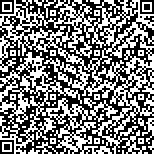| 王栋梁,杨 浩,宋少莉.代谢重编程在化疗耐药乳腺癌中的作用机制[J].肿瘤学杂志,2021,27(3):196-201. |
| 代谢重编程在化疗耐药乳腺癌中的作用机制 |
| Study on Mechanism of Metabolic Reprogramming in Chemotherapy Resistant Breast Cancer |
| 投稿时间:2020-11-03 |
| DOI:10.11735/j.issn.1671-170X.2021.03.B008 |
|
 |
| 中文关键词: 乳腺癌 抗药性 糖酵解 |
| 英文关键词:breast cancer drug resistance glycolysis |
| 基金项目:国家自然科学基金项目(81830052;81903065);上海市分子影像学重点实验室(18dz2260400) |
|
| 摘要点击次数: 1329 |
| 全文下载次数: 429 |
| 中文摘要: |
| 摘 要:[目的] 探讨葡萄糖代谢在耐药乳腺癌组织中的改变及其在乳腺癌细胞化疗耐药中的作用机制。[方法] 取10只裸鼠,分别采用人乳腺癌细胞株MCF7和紫杉醇耐药细胞株MCF7-Taxol右侧腋下接种建立乳腺癌裸鼠移植瘤模型和紫杉醇耐药乳腺癌模型各5 只。给药4 周后处死,免疫组织化学染色法、Western blot法用于检测癌组织和耐药癌组织糖酵解关键酶的表达。采用乳酸测定试剂盒和丙酮酸测定试剂盒分别检测两组癌组织中乳酸和丙酮酸的含量。在耐药细胞MCF7-Taxol中用siRNA敲低HK2、PFKFB3、PKM2表达,Western blot和实时荧光定量PCR(qRT-PCR)方法检测HK2、PFKFB3、PKM2的敲低效率,CCK8法检测MCF7-Taxol耐药性改变。[结果] 紫杉醇耐药乳腺癌组织中糖酵解关键酶HK2、PFKM、PKM2表达明显高于紫杉醇敏感乳腺癌癌组织(P值均<0.0001)。相对于癌组织,耐药癌组织中的乳酸产量和丙酮酸产量相对提高增高约28%(P=0.0005)和 50%(P=0.001)。与siNC组(1.00±0.02)相比,敲低组细胞中的HK2 mRNA(0.56±0.03)、PFKFB3 mRNA(0.37±0.01)、PKM2 mRNA(0.42±0.01)相对表达水平明显降低,蛋白水平也明显降低(P值均<0.05)。CCK8结果显示糖酵解酶敲低后MCF7-Taxol紫杉醇耐药性不同程度的减低(P值均<0.05)。[结论] 糖酵解关键酶的高表达介导了化疗耐药乳腺癌的代谢重编程。抑制糖酵解关键酶HK2、PFKM、PKM2表达逆转了乳腺癌的紫杉醇耐药性,有望成为治疗化疗耐药乳腺癌的有效措施。 |
| 英文摘要: |
| Abstract:[Objective] To investigate the changes and mechanisms of glucose metabolism in paclitaxel-resistant breast cancer.[Methods] The breast cancer xenograft tumor model and paclitaxel-resistant breast cancer model were established by subcutaneous transplant with human breast cancer MCF7 cells and paclitaxel-resistant breast cancer MCF7-taxol cells on the right underarm of 10 nude mice,respectively,with 5 mice in each group. Nude mice were sacrificed 4 weeks after the transplantation,the expression of glycolytic enzymes in breast cancer tissues were detected by immunohistochemistry and Western blot. The contents of lactic acid and pyruvic acid were measured by lactic acid determination kit and the pyruvate determination kit respectively. The siRNA was used to knock down the expression of HK2,PFKFB3 and PKM2 in MCF7-taxol cells, and Western blot and qRT-PCR were used to detect the knockdown efficiency. CCK8 method was used to detect the change of drug resistance of MCF7-taxol. [Results] Compared to the paclitaxel-sensitive breast cancer tissues,the expression of glycolytic enzymes HK2,PFKM,PKM2 in paclitaxel-resistant breast cancer tissues was significantly increased(P<0.0001), the production of lactic acid and pyruvate in paclitaxal-resistant breast cancer tissue was increased by 28%(P=0.0005) and 50%(P=0.001),respectively. Compared with siNC group(1.00±0.02),the relative mRNA levels of HK2(0.56±0.03),PFKFB3(0.37±0.01) and PKM2(0.42±0.01) in knockdown group were significantly decreased(P<0.05) and the protein levels were also significantly decreased. CCK8 results showed that the resistance of MCF7-taxol to paclitaxel decreased in varying degrees after knockdown of HK2,PFKFB3 and PKM2(P<0.05). [Conclusion] The key glycolytic enzymes mediated metabolic reprogramming are highly expressed in chemotherapy resistant breast cancer. Knockdown of the expression of key enzymes HK2,PFKFB3 and PKM2 can reverse the resistance of breast cancer to paclitaxel,which is expected to be an effective treatment for chemoresistant breast cancer. |
|
在线阅读
查看全文 查看/发表评论 下载PDF阅读器 |